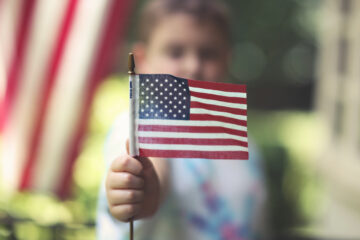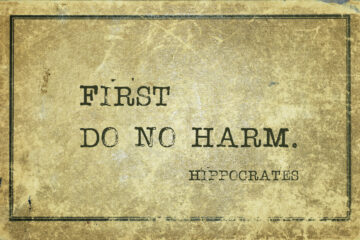Few health-related issues are more divisive today than government and private employer mandates involving facial coverings and vaccine requirements. As a firm that dedicates much of our practice to constitutional and civil liberties litigation, our office has been recently inundated with calls for legal advice from government workers, employers and individuals wrestling with how to balance rights of conscience and individual liberties on the one hand, versus the power of federal, state and local governments to impose such regulations.
Like many legal issues that have surfaced since the emergence of the COVID-19 pandemic, these are not simple or esoteric questions. They are complex and involve real life challenges. This is an area in which personal decisions have drastic consequences and may cost one their livelihood and subject them to public ridicule and stigmatization.
Here is a small sample of the types of legal cases in which clients have sought our advice.
- An Air Force lieutenant with an impeccable military record has received through his chain of command a bulletin from the Joint Chiefs of Staff stating: “COVID-19 is a threat to force protection and readiness. With this in mind, the Secretary of Defense intends to mandate vaccinations for all Service members in coming weeks.”
- A graduate student at Vanderbilt University was singled out in class by her professor when he learned she had been granted a religious exemption to taking the vaccine.She was to stand in class, gather her belongings and move the back of the class.Her student peers were advised not to sit near her or engage in social contact with her while in class.
- Parents of school age children enrolled in a local school system are turning to us for advice over the juxtaposition of the Governor’s recent “opt-out” Executive Order and the school system’s insistence that masks be worn by all children.Their concerns are that school officials will treat their children as social outcasts if they choose to exercise the opt out option.
- A prominent business owner who posted a message expressing her personal opposition to vaccine mandates was the target of organized picketing outside her business and the cancellation of product orders from her national suppliers in an effort to shut down business.
- A professor at a distinguished private university was faced with the forfeiture of his tenure and the loss of tuition credit for his two children who were enrolled as students unless he received the vaccine.
Many who are conscientiously opposed to receiving the vaccine possess base their objection on their sincerely-held religious convictions which they say compels their faith-based decision. Generally, the government cannot burden religious liberty unless it has a compelling reason and its regulation must impact religion in the least restrictive way.
Others have pragmatic, health-based concerns. For example, one university student who came to us for help has a genetic predisposition to an illness that exposes her to risk of anaphylactic shock if she is vaccinated. Despite the fact that ample medical evidence of this risk was presented to the university, it is still demanding additional proof before granting her an exemption from its on-campus residency requirement and other protocols.
So far, there are 24 states that require vaccination for employees of various categories. Of those, twenty-one specify requirements for healthcare workers, and the majority of those states require vaccination or regular testing of unvaccinated employees. Six states have taken a “vaccinate or terminate” approach.
The vast majority of these laws only apply to state and local government employers, and several private industries such as airlines, hospitals and nursing homes now require mandatory vaccine status documentation from their employees. States like Florida and Tennessee which have Governor Executive Orders making vaccines and/or mask mandates voluntary have been the subject of recent class-action lawsuits challenging the authority of these Governors.
Title I of the Americans with Disabilities Act (ADA) requires employers to provide reasonable accommodation to qualified applicants and employees with a disability, unless they can demonstrate that doing so creates an undue hardship to them as an employer or poses a direct threat to the safety of the employee or others in the workplace.
Employers also have an obligation to accommodate an employee’s sincerely held religious belief under Title VII of the Civil Rights Act (Title VII), unless the accommodation creates an undue hardship. A sincerely held religious belief can include an employee’s religious-based objection to vaccinations.
There are compelling arguments on both sides of this issue. Those who stridently advocate for universal vaccination often cite to the overcrowding of hospitals and the need to sacrifice individual preference for the greater good of others.
This article will doubtless stir some amount of controversy among our readers. Many on both sides of this issue hold fast to their convictions about the efficacy or propriety of the COVID-19 vaccines. While some insist that it is a matter of civic duty; others as just another intrusion into their personal liberty. Like all rights of conscience, this issue involves political rights that protect one’s ability to do what they believe is morally best, and in some cases, required by their most sincere, core beliefs.
Larry L. Crain, Crain Law Group, PLLC – www.crainlaw.legal













